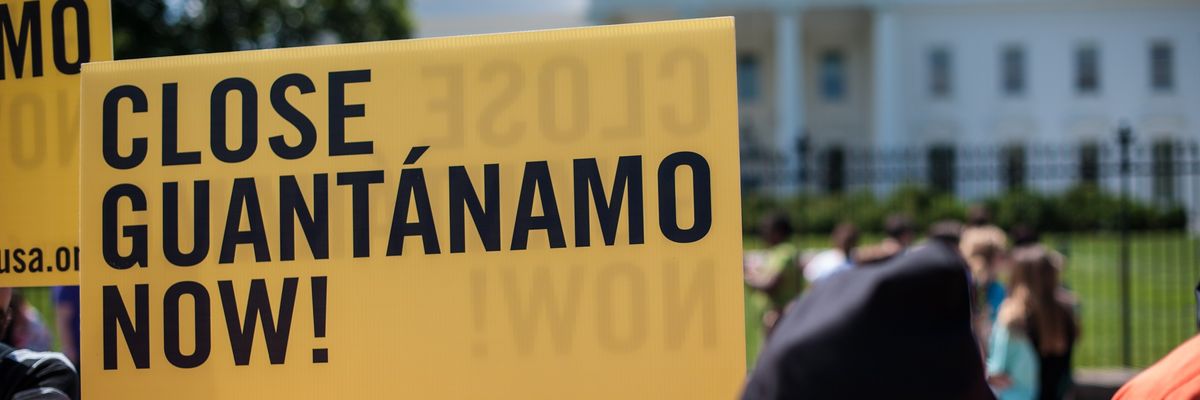U.S. President Donald Trump's announcement Wednesday that he is ordering officials to prepare the Guantánamo Bay Naval Base in Cuba to house tens of thousands of migrants was met with swift condemnation from rights groups this week.
"Guantánamo has long been a stain on America's human rights record. Using it to detain migrants would be a dangerous escalation of anti-immigrant policies," wrote Guerline Jozef, executive director at Haitian Bridge Alliance, an immigrant advocacy group, in a statement on Friday.
Trump announced the plan during a signing ceremony for the Laken Riley Act, legislation that strips due process rights from millions of undocumented immigrants, saying, "we have 30,000 beds in Guantánamo to detain the worst criminal illegal aliens threatening the American people."
A presidential action published by the White House that same day called on the Secretary of Defense and the Secretary of Homeland Security "to take all appropriate actions to expand the Migrant Operations Center at Naval Station Guantánamo Bay to full capacity to provide additional detention space for high-priority criminal aliens." The memorandum did not state how many migrants are expected to be detained there.
Vincent Warren, executive director of the Center for Constitutional Rights, called the move a decision that "should horrify us all."
"The order... sends a clear message: migrants and asylum seekers are being cast as the new terrorist threat, deserving to be discarded in an island prison, removed from legal and social services and supports," Warren continued.
Congressional Hispanic Caucus Chair Adriano Espaillat (D-N.Y.) said in a Thursday statement that he is "deeply troubled" by the plan, arguing that it raises "serious human rights concerns, risks significant abuses, and would impose unnecessary costs on taxpayers." Amnesty International has also decried the announcement.
Guantánamo Bay's military prison has become associated with the repression and violence carried out by the United States during the "War on Terror" that launched after the September 11, 2001 terrorist attacks. It has been used to hold hundreds of foreign terrorism suspects, many without charge, since it opened in 2002.
Facilities at Guantánamo Bay facilities have also been used to detain asylum seekers, migrants, and refugees for decades, but not in the manner that Trump is now suggesting.
Both Presidents George H.W. Bush and Bill Clinton processed Haitian refugees at Guantánamo Bay, but those were people taken into custody at sea, not brought from the U.S. mainland. And while the Biden administration last year considered processing Haitian migrants there as well, it never followed through with the policy.
Looking ahead, Warren of the Center for Constitutional Rights also vowed to fight back, saying his group "has challenged the U.S. government's use of Guantánamo in all its incarnations, and we, along with our partners, will do so again."
